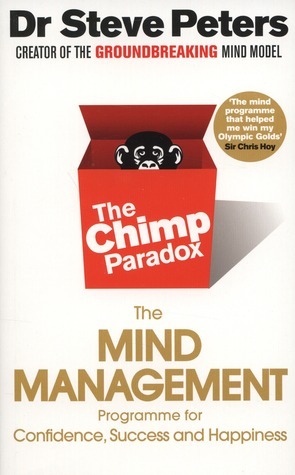What do you think?
Rate this book


346 pages, Paperback
First published January 1, 2012
To work out who you really are as a person is easy to do. If you wrote a list of all the things you would like to be, you may write things like calm, compassionate, reasonable, positive, confident, and happy, then this is who you really are. Any deviation from this is hijacking by the Chimp.
"The Psychological Mind therefore has two independent thinking machines that also independently interpret our experiences.
The two beings that think and then interpret
• The Human is you, and you live in your frontal lobe.
• The Chimp is your emotional machine, given to you at birth, and it lives in your limbic system."
